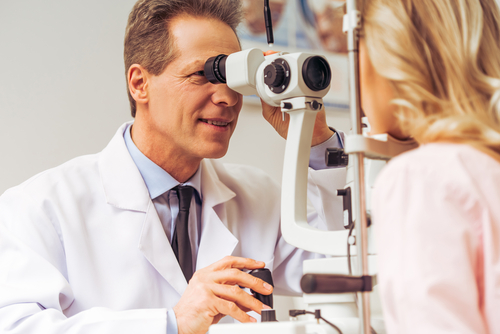Preparing for a vision appointment can help you make the most of your time and address any concerns about your eye health or vision changes. Whether you are seeing a general optometrist or a neuro-optometric specialist, bringing the right information can be valuable. This article outlines key details to gather and items you may want to bring to your visit.
Document Your Vision Changes and Symptoms
Before your appointment, take time to reflect on any vision-related issues or concerns you’ve experienced. Write down specific symptoms, such as blurry vision, eye strain, or headaches. Note when these symptoms started and whether they follow particular patterns, like occurring after long periods of screen use. Include any changes in your ability to focus, adjust to light, or perceive depth. This record will help the specialist better understand your situation and guide the discussion during your visit.
Bring Your Current Prescription and Eyewear
If you wear glasses or contact lenses, make sure you bring your current prescription and the eyewear you use daily. This might include multiple pairs, such as reading glasses or separate prescriptions for distance. Bringing this information allows the specialist to evaluate your current vision aids and recommend updates if needed. It can also provide insights into how your prescription has changed over time.
Summarize Your Medical History and Medications
Your overall health can influence your vision, making it helpful to prepare a short summary of your medical history. Include any diagnosed conditions, such as diabetes or hypertension, that may impact your eye health. Create a list of any medications you take, including over-the-counter products and supplements. Some medications can have side effects that affect vision, so providing this information can be a key part of the evaluation.
Note Family History of Eye Conditions
Family history can play a role in understanding potential risks for eye conditions like glaucoma or macular degeneration. Inform the specialist of any known eye health issues in your immediate family, such as parents or siblings. This information can guide the specialist in recommending preventive measures or more specific diagnostic tests during your visit.
Questions to Ask During the Appointment
Preparing a written list of questions can be a practical way to make sure all your concerns are addressed. Writing questions down beforehand can help you stay organized during the conversation. You may want to include questions like:
- How can I maintain my eye health?
- Can recent lifestyle changes affect my vision?
- Do I have any conditions that may benefit from neuro-optometric treatment?
- What are my options for new eyewear or treatments?
- How do these treatments fit into my current situation?
Wrap Up With a Plan
After the appointment, discuss next steps to clarify anything you need to follow up on. This might include scheduling additional tests, making lifestyle adjustments, or trying new eyewear. Many neuro-optometric specialists provide written recommendations or summaries, which can help you stay informed about your eye health going forward.
Schedule Your Vision or Neuro-Optometric Appointment Today
Preparedness can make your time with the vision specialist more productive and insightful. With details like symptom descriptions, medical history, and questions prepared in advance, you can better understand your eye health and address any concerns. Book your next vision appointment with confidence today. A neuro-optometric specialist can provide tailored insights and guidance to enhance your visual well-being.
